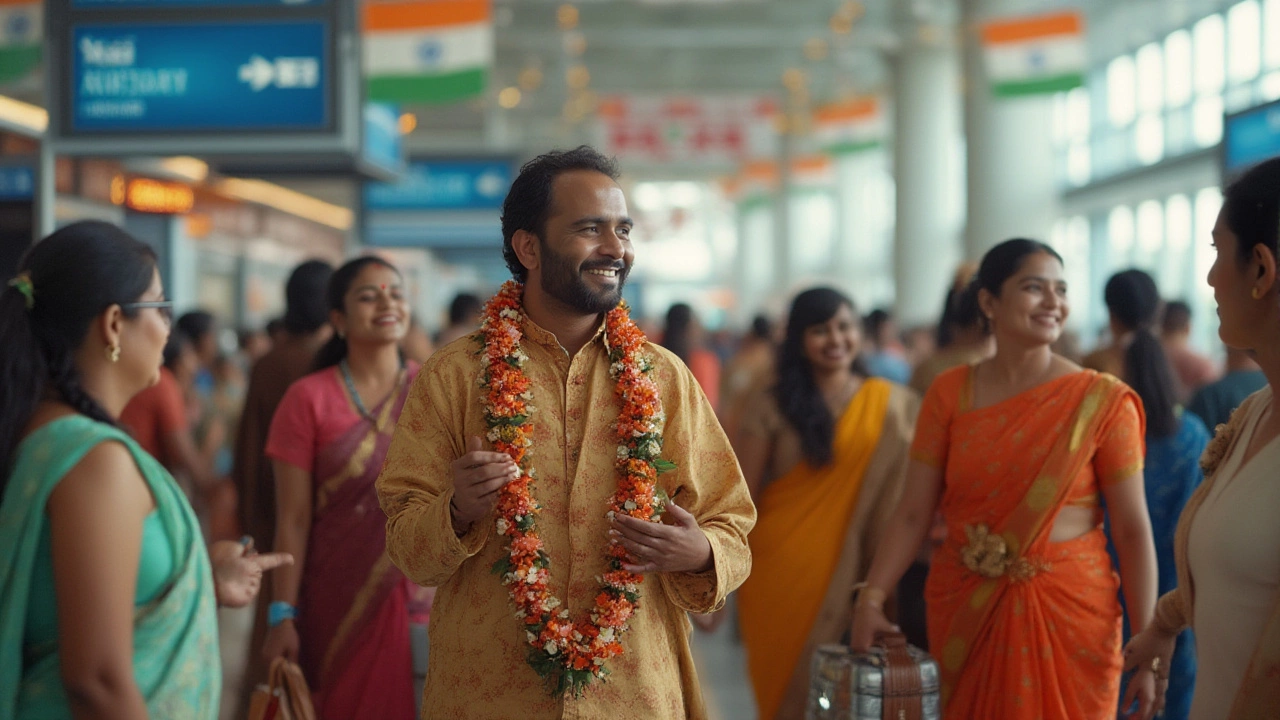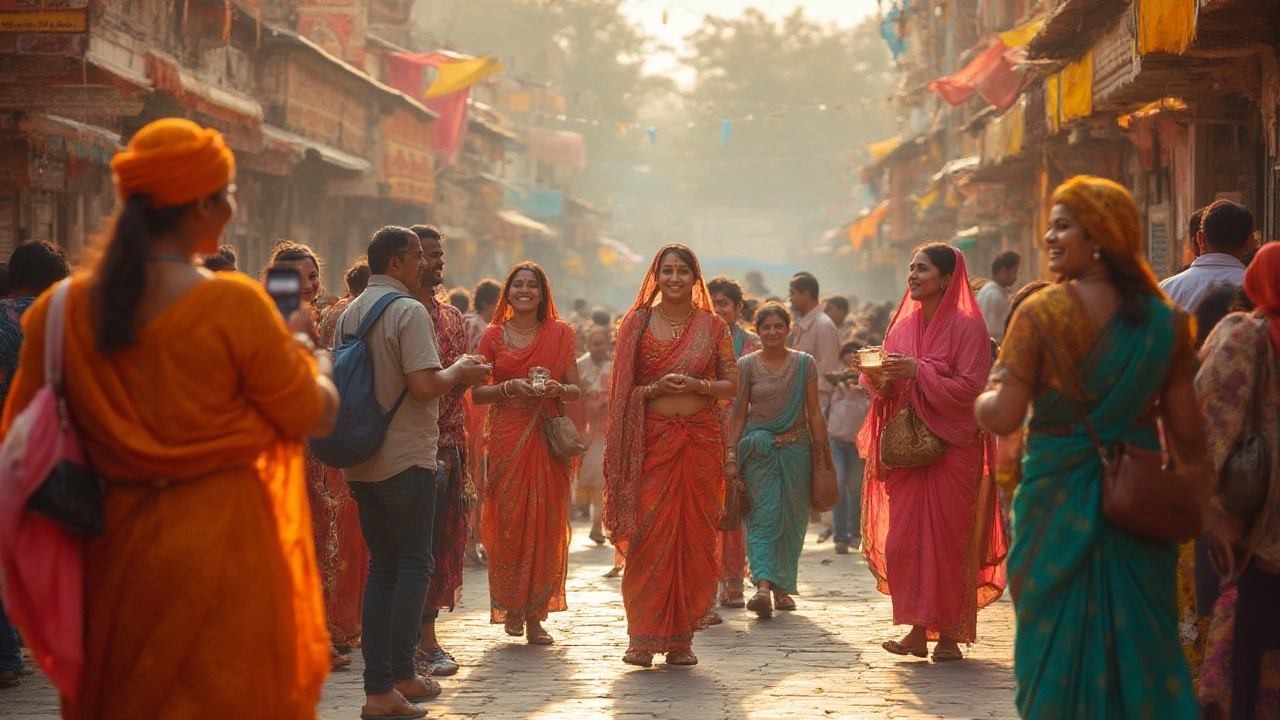Picture this: you step off the plane, tired, maybe a bit nervous, unsure about the place or the people, and suddenly a local flashes a warm smile or offers to help with your luggage. That split-second interaction defines your whole experience. Some countries take hospitality seriously, making strangers feel like old friends from the start. But is there a winner in the global kindness contest? Let’s just say, friendliness isn’t evenly spread out—some nations are just built for rolling out the welcome mat, time and again.
What Makes a Country Really “Like” Tourists?
Let’s get one thing clear—liking tourists is more than just business sense or fake politeness. Locals who genuinely welcome visitors do so with real curiosity and open arms. So, what separates the truly warm countries from the rest?
First, it’s about culture. Some cultures bake hospitality right into daily life. Think of Indian “atithi devo bhava” (guest is god) or the Middle Eastern tradition of serving tea to strangers.
Next, you’ve got to consider attitude towards outsiders. Countries where people learn multiple languages, for instance, are often more curious about other cultures. Thailand, for example, is famous for the “Land of Smiles” vibe, but not every Asian country gives you the same treatment.
And then, there are the little things: how easily you get lost in a city without being ignored, the way restaurant staff treat you when you mess up the local etiquette, or how people respond when you ask for directions on a rainy night.
Policies matter, too! Visa-free access, tourist-friendly laws, and efficient roads or signs in English all help bridge barriers. Ever notice how easygoing Portugal is for backpackers? Or the fact that Ireland’s tourism board even trains cab drivers to talk to lost travelers like they’re VIP guests?
But none of this means much unless the streets feel safe and comfortable day or night. Finland, for example, scored top marks on the Global Peace Index and also for politeness, but Finns are famously reserved, so you won’t always get that chatty welcome. Meanwhile, Brazil’s party-loving, hug-happy locals make even solo travelers feel like they’ve stumbled into a family reunion.
Pro tip? Don’t just count smiles. Think about genuine interest, support for tourists, safety, and all the little ways a country says “Hey, we’re glad you’re here.”
Top Countries Where Tourists Feel Most Welcome
So, where should you actually go if you want more than just a selfie at the world’s wonders? Here’s a look at countries globally ranked for their outstanding hospitality (based on expat surveys, stats from the World Economic Forum, and famous travel indices):
- Ireland: Secret pubs, poets, giggles, and singing bartenders—Irish friendliness isn’t a myth. Locals treat strangers like long-lost cousins. An old study by TripAdvisor put Dublin in the top 5 cities worldwide for friendliness!
- New Zealand: Kiwis are relaxed, chatty, and go out of their way to help. Hitchhikers get picked up, kids play barefoot, and even customs officers can swap jokes. Maori culture also honors guests.
- Portugal: The ‘open door’ policy is real. Everyone from taxi drivers to pensioners at local bakeries are up for a chat. Expat Insider’s 2023 study rated Portugal #1 out of 53 countries for “friendliness towards foreigners.”
- Japan: Yes, it’s quiet and people are polite—sometimes almost too reserved. But ask for help in Tokyo and watch a crowd of locals come together, use Google Maps, and escort you across the city. The country’s tourism support is world-class.
- Canada: You’ve seen the memes—Canadians apologizing when you bump into them! People in Vancouver, Montreal, and Toronto routinely help tourists, and Canada was Forbe’s 2024 pick for solo female travelers for a reason.
- Thailand: Smiles everywhere. Thai culture places a premium on “sanuk” (fun) and knowing how to treat guests. Even in the busiest tourist traps of Phuket, you’ll often leave hotels feeling part of a family.
- Mexico: Mexican hospitality is more than good tequila and tacos. Stranded on the roadside? Someone will offer a lift or food. Big towns like Oaxaca and small villages alike pride themselves on including gringos in festivals, dances, and even weddings.
It’s not one-size-fits-all, though. The same tourist in Prague or Paris might feel less love—the service is professional, but the warmth sometimes gets lost, especially in busy seasons. In contrast, places like Nepal and Georgia (the country, not the U.S. state!) are legendary among backpackers for overwhelming kindness and constant invitations to join local dinners.
Check out the following table for stats that might surprise you:
| Country | Expat Friendliness Ranking (2024) | Tourism Competitiveness Score | Visitors per Year (Millions) |
|---|---|---|---|
| Portugal | 1 | 4.7/5 | 27 |
| Ireland | 3 | 4.5/5 | 13 |
| New Zealand | 4 | 4.3/5 | 4 |
| Thailand | 8 | 4.6/5 | 39 |
| Japan | 10 | 4.8/5 | 32 |
| Canada | 12 | 4.2/5 | 21 |
| Mexico | 13 | 4.0/5 | 45 |
Portugal’s friendliness matches real numbers. Over a million expats have moved in since 2017, and most stay for the sense of community. Meanwhile, New Zealand stays high on the list despite remote geography, proving distance is no obstacle to a warm hug.

How Locals Show They Love Tourists
Behind the numbers, what does actual tourist-welcoming behavior look like on the street?
In Ireland, walk into a rural pub alone and the bartender might introduce you to half the bar. Next stop, a local’s wedding—seriously, this happens more than you’d expect. Kiwis in New Zealand are famous for inviting backpackers home for a ‘barbie’ (barbecue), or for finding lost travelers a place to camp, especially along hiking routes.
Portugal doesn’t stop at smiles. It’s pretty common for neighbors to send you home with homemade pastries after a quick chat, or for waiters to WhatsApp you favorite places in their town.
Mexicans are known to spontaneously include foreigners in village festivals, whether it’s The Day of The Dead in Oaxaca or a spontaneous street dance in Guanajuato. Don’t be surprised if an Abuela (grandmother) grabs your wrist and insists you try homemade tamales.
Even language barriers don’t always block hospitality. In Japan, the bowed apology and call for help from staff aren’t just politeness—they’re genuine, scripted into the culture to prevent a guest from feeling embarrassed or stuck. If you get lost in Tokyo’s train maze, at least one local is likely to drop everything and walk you straight to the right platform.
Human gestures matter most. A warm greeting, help loading a suitcase, or just someone explaining quirky local customs. Quiet countries, like Finland or Estonia, might surprise you when locals open up over coffee—friendliness just looks different depending on where you land.
It’s not all perfect though. Too much tourism can lead to “tourist fatigue,” especially in cities bursting at the seams like Barcelona or Venice—where locals sometimes get snappy, especially during festival months. But head off the beaten path, and find those magic moments where locals let their guard down and invite you in for stories or dinner.
What About Less-Welcoming Places?
Not every country rolls out a red carpet. Russia, for instance, ranks low on most friendliest-country lists, mostly due to a language barrier and strict rules. France is legendary for its Parisian “rudeness,” but step outside of Paris and you’re more likely to be invited to a cider festival in Normandy or a wine tasting in Bordeaux.
The United States is a mixed bag. Southern hospitality is a thing—folks in small-town Alabama or Texas will ask you where you’re from, treat you to iced tea, and send you off with tips about secret local gems. Meanwhile, major cities like New York can feel cold, but don’t mistake speed and hustle for hostility. Many New Yorkers are happy to stop and give directions once you ask.
Some countries just aren’t built for tourists. Think of small, closed-off societies, or places where heavy security and political turbulence keep travelers distant. It’s rarely about the people and more about politics or culture. In parts of China, locals might stare or seem wary just because tourism isn’t part of daily life.
Then there’s “tourist overload.” Venice, Barcelona, and Amsterdam all struggle with overtourism. When locals start seeing more selfie sticks than neighbors, things can get tense. You might sense a lack of patience in crowded tourist hubs, but again—wander into a residential part of town, chat at a quiet café, and you’ll often find locals desperate for a real conversation.
Safety concerns can also make places seem unwelcoming. Even if the locals are friendly, official warnings, confusing transit, or lack of tourist help can kill the vibe fast. That’s why Italy, with its beautiful chaos, doesn’t always make the “friendliest” lists, even though Italians are warm one-on-one.
Travelers who expect instant service or “the guest is always right” attitude in every culture might end up disappointed. Hospitality looks different depending on whether you’re in a bustling market in Morocco, a tiny Swiss village, or a diner in the Midwest. Adapt, observe, and try connecting with locals on their own terms for the best stories.

How to Get the Best Welcome Wherever You Travel
Here’s the good news—no matter where you go, you can tip the scales toward a friendlier welcome. A little curiosity, respect, and openness go a long way.
- Learn a few basic words in the local language—even “thank you” gets big smiles in Japan or Portugal.
- Dress respectfully, especially in religious or rural areas.
- Don’t just stick to the tourist spots—wander into local markets or quiet neighborhoods.
- Ask open-ended questions about food or culture—most folks love sharing stories about home.
- Show genuine gratitude—tip fairly, say thank you, and write a review if someone goes above and beyond.
- Keep calm if things go wrong—lost bags or missed buses happen. Locals are more likely to help if you don’t panic.
- Offer to share about your own country or culture. Hospitality is a two-way street.
Personal story time: during my travels in Portugal, a woman in Porto not only gave me directions but walked me halfway across the city, introduced me to her friends at a riverside café, and sent me home hours later with her mother’s recipe for caldo verde (green soup). All from a simple “desculpe, pode ajudar?”—excuse me, can you help?
Even countries not topping hospitality charts have their pockets of friendliness—look for them in family-run guesthouses, local festivals, or even random train journeys. Travel is about connections, and when you open up, people tend to do the same.
So, which country likes tourists the most? If you count smiles, stories, and the invitations to share a meal, you won’t find a universal ranking. But keep these welcoming nations in mind for your next adventure—and remember, the best travel stories always start with a friendly hello.
